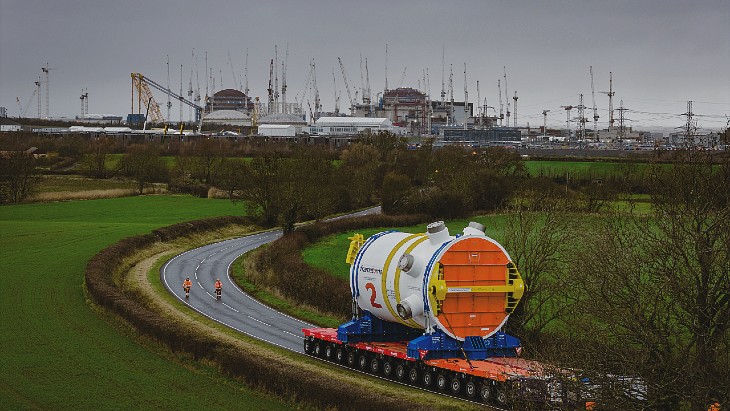ARC is developing the ARC-100, a 100 MWe integrated sodium-cooled fast reactor with a metallic uranium alloy core. It is designed for both on-grid electricity production and industrial heat applications. The design is based on the Experimental Breeder Reactor-II integral sodium-cooled fast reactor prototype which operated at the USA's Argonne National Laboratory from 1961, finally shutting down in 1994.
The Canadian Nuclear Safety Commission's (CNSC's) pre-licensing vendor design review (VDR) is an optional service to provide an assessment of a nuclear power plant design based on a vendor's reactor technology. It is not a required part of the licensing process for a new nuclear power plant, but aims to verify the acceptability of a design with respect to Canadian nuclear regulatory requirements and expectations.
The review involves three phases: a pre-licensing assessment of compliance with regulatory requirements; an assessment of any potential fundamental barriers to licensing; and a follow-up phase allowing the vendor to respond to findings from the second phase. These findings will be taken into account in any subsequent construction licence application, increasing the efficiency of technical reviews. The duration of each review is estimated based on the vendor's proposed schedule. A Phase 1 review typically takes 12–18 months and a Phase 2 review takes 24 months.
CNSC's review of the ARC-100 small modular reactor design began in September 2017. ARC announced in October 2019 that the design had passed the first phase of the VDR.
As part of Phase 2 of the review, which began in 2022, ARC submitted hundreds of technical documents covering 19 focus areas defined by the CNSC and of importance to future licensing applications. The submissions included information related to safety systems, safety analyses, reactor and process system design, regulatory compliance, and quality assurance.
ARC has now announced the successful completion of Phase 2 of the VDR, with the CNSC concluding that no fundamental barriers to licensing the ARC-100 have been identified.
"This significant milestone reflects ARC’s dedication and commitment to meeting Canada’s rigorous nuclear regulatory standards," said ARC Chief Operating Officer Robert Braun. "The successful completion of this review by the CNSC, an internationally respected nuclear regulator, gives global credibility to our technology and sets us apart as a leader among advanced small modular reactor technologies."
ARC said the conclusion of the Phase 2 review brings additional confidence and focus to licensing activities already in progress for a demonstration unit of the ARC-100. Since 2018, ARC and New Brunswick Power (NB Power) have been working together on the development of the ARC-100. In July 2023, NB Power, in partnership with ARC, submitted an environmental impact assessment registration document and an application for a site preparation licence for an SMR at the Point Lepreau nuclear power plant site in New Brunswick. The demonstration unit is slated for commissioning by 2029, subject to approvals and licensing. The deployment of the ARC-100 in New Brunswick is part of a joint strategic plan on SMR development and deployment released by the governments of Ontario, Saskatchewan, New Brunswick and Alberta in 2022.
"NB Power congratulates ARC Clean Technology on the completion of Phase 2 of the CNSC's Vendor Design Review," said Lori Clark, President and CEO of NB Power. "We've been pleased to provide technical support throughout this process and recognise this as a meaningful step in ARC's project development. We look forward to continued collaboration in exploring innovative energy solutions."

_16911.jpg)




_45278.jpg)
_36317.jpg)






